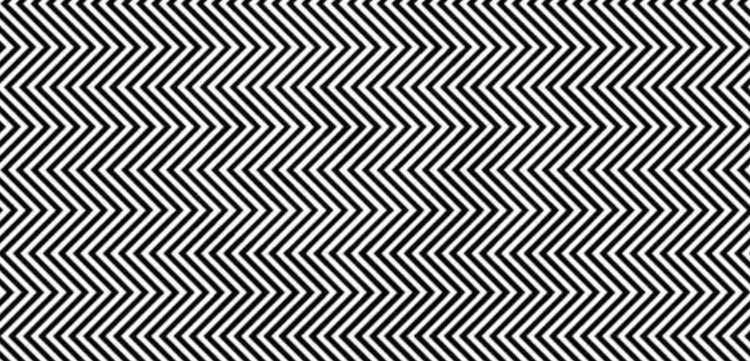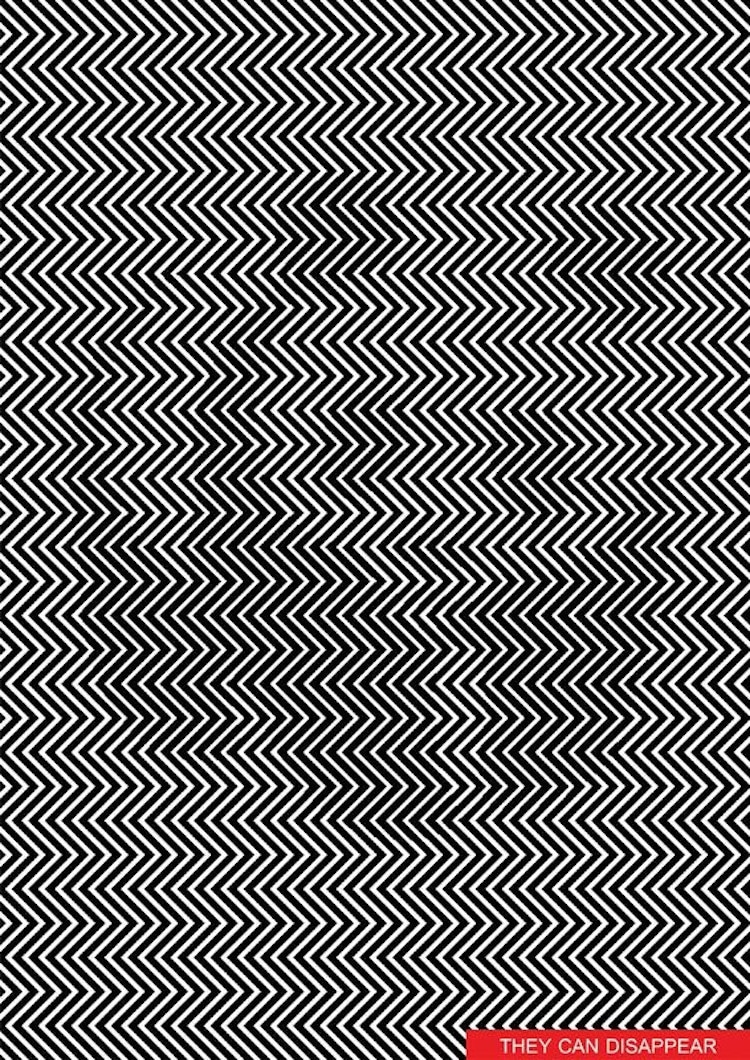Photo: Ilja Klemencov (CC BY-NC-ND 4.0)
What do you see among these zigzag lines?
TitledThey Can Disappear, the trick-of-the-eye image aims to spread an important message about conservation efforts.
With around 1,800 left in the wild, giant pandas are currently classified as a vulnerable species.

Photo: Ilja Klemencov (CC BY-NC-ND 4.0)
The optical illusion is an example of the McCollough effect.
The visual phenomenon was discovered by Celeste McCollough in 1965.
He found that staring at two-color grids for a few minutes can trick the eye into seeing different colors.

Photo: Ilja Klemencov (CC BY-NC-ND 4.0)
If you cant see the color change, tilting your head to 90 degrees might help.
And if youre struggling to make out the panda, try stepping back from your screen.
Check out the full-sizeThey Can Disappearillusion below.